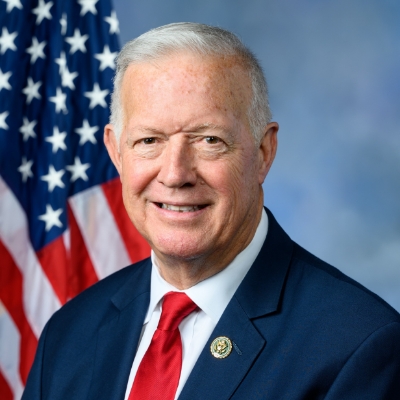- Home
- About
- Contact
- Services
- Art Competition
- Community Project Requests
- Congressional Commendations
- Flags
- Assistance with a Federal Agency
- Internships
- Military Academy Nominations
- Passports
- Presidential Greetings
- Tours and Tickets
- The Congressional Award
- Grants
- Water Resources Development Act 2026
- Additional Services and Resources
- Media
- Legislation
- Issues
- Resources
 U.S. REPRESENTATIVE
Randy Weber
Proudly Serving Texas' 14th District
U.S. REPRESENTATIVE
Randy Weber
Proudly Serving Texas' 14th District
Energy and the Environment
EnergyAlong Texas’ Gulf Coast, we take great pride in the diverse energy resources that we refine and ship. That pride comes not only from how energy drives our economy, but also from knowing that we contribute to making America more secure. The EnvironmentAs a father and grandfather, I agree that keeping our water, land, and air clean is important. Policies that promote these valuable goals must also take into account their impact on job creation and economic growth.
As you may know, Congress established the Environmental Protection Agency (EPA) in 1970 to consolidate all the government’s pollution control responsibilities under a single federal agency. Since that time, Congress added and expanded EPA’s authority to include the regulation of air quality, water quality, and chemicals in commerce, the development of regulatory criteria for the management and disposal of solid and hazardous wastes, and the cleanup of environmental contamination. The implementation and enforcement of many of these federal requirements is delegated to the states. In Texas, the Texas Commission on Environmental Quality (TCEQ) plays a leading role in enforcing regulations under the Clean Water Act and the Clean Air Act, and it does a good job of balancing environmental and economic concerns. In 2007, the U.S. Supreme Court decided in Massachusetts v. EPA that the EPA has the authority to regulate greenhouse gas emissions under the Clean Air Act. This significantly expanded the EPA’s powers far beyond the original intent of the Clean Air Act, which was written to tackle the issue of local and interstate pollution. Aggressive action to reduce these emissions in the U.S. will have a negligible impact as long as emissions continue to grow rapidly in countries like India and China. Despite the increase in global emissions, Americans are reducing emissions without EPA’s recent regulatory proposals, and this will continue as more electric utilities switch from coal power to natural gas. In fact, emissions of carbon dioxide, the primary greenhouse gas, has fallen 12 percent since 2005 according to EPA data. One of my top priorities in Congress is ensuring that regulations are based on sound science and benefit the American people. Last Congress, I voted to increase transparency, independence, and scientific integrity at the EPA. The House passed H.R. 1430, the Honest and Open New EPA Science Treatment (HONEST) Act of 2017, which would require the EPA to base its regulations on science that is publicly available and therefore verifiable by outside researchers. I also supported H.R. 1431, the EPA Science Advisory Board Reform Act, which would strengthen the independence of the advisory board by providing increased opportunities for public comments and reducing conflicts of interest. As a member of the House Committee on Science, Space, and Technology, I will continue to promote fairness, transparency, and public participation, as well as other commonsense reforms that ensure unbiased science at the EPA. For more information concerning my work and views related to Energy and the Environment, please contact me. I look forward to hearing from you. Thank you. |

